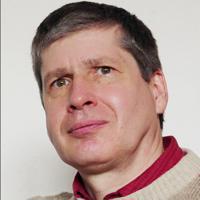Basics of Voice Acoustics for Voice Pedagogues
Thursday 26th October 2023, 5:00 PM - 7:00 PM (London Time)
In this course, we will explain the basics of the acoustics of human voice. We will answer questions such as: What is sound? How can sound be investigated? We will shortly explain four basic characteristics of sound, i.e., fundamental frequency, sound spectrum, sound intensity and length, and their relationship to the perceived sound qualities, i.e., pitch, timbre, loudness and sound duration, respectively.
Next, we will look at different basic types of sound: pure tones, complex tones and noises. We will show how these sounds can be recognized perceptually by ear, as well as objectively by simple analysis of the sound waveform and of the sound spectrum. We will demonstrate the production of such vocal sounds live and show how we can understand and analyze them using the Voce Vista software.
Further, we will cover the basics of the source-filter theory of voice production and talk about how the voice source and filter differently contribute to the produced vocal sound. We will talk about the harmonics (overtones) and formants, which are important for voice timbre. We will also talk about the role of formants for production of vowels as well as for different singing voice qualities. We will show how we can easily synthesize voice of a singer using a software based on the principles of the source-filter theory.
Finally, we will take a look at the voice resonance phenomenon and discuss the contribution of subglottal and supraglottal (vocal tract) cavities to the resulting vocal sound. We explain and discuss three possible strategies for improving the “resonance in voice”: formant tuning, singer’s formant and changes of vocal tract inertance. By the end of the course, you will have a better idea on how voice acoustics can provide more insights and better understanding of human voice production and how can it be applied to singing voice.
Attend both Jan Svec's Basics of Voice Acoustics for Voice Pedagogues and Gökçe Kutsal's Acoustics in the Voice Studio and save £10!
Jan Svec
Jan G. Svec, Ph.D. is an internationally renowned Czech physicist performing basic research on production of human voice. He holds a MSc degree in fine mechanics and optics and PhD degrees in biophysics as well as in medical sciences...

Attend this course for as little as £22 as part of the Voice Professional Training CPD Award Scheme.
Learn MoreSorry, this is an archived short course...
We have plenty of upcoming short courses coming soon. See details of some of them below or look at the full list of short courses.

Wednesday 4th March 2026
1:00 PM - 2:00 PM
Wednesday 11th March 2026
1:00 PM - 2:00 PM
Wednesday 18th March 2026
1:00 PM - 2:00 PM
Wednesday 25th March 2026
1:00 PM - 2:00 PM
Wednesday 1st April 2026
1:00 PM - 2:00 PM
Wednesday 8th April 2026
1:00 PM - 2:00 PM
(London Time)
Learn to Coach RP and SSBE – a Certificate in Accent Coaching

Louisa Morgan
This six-week course is an opportunity to learn about both Received Pronunciation and Standard Southern British English. Rather than a course in learning how to speak RP/SSBE (there are many brilliant available courses for this already), this course is about learning how to coach it.

Thursday 5th March 2026
1:00 PM - 2:30 PM
Thursday 12th March 2026
1:00 PM - 2:30 PM
(London Time)
Acting Emotion: Perspectives from the Masters

Louisa Morgan
Stanislavski said, “our artistic emotions are, at first, as shy as wild animals and they hide in the depths of our souls.” Michael Chekhov said, our bodies should be like a “sensitive membrane, a kind of receiver and conveyor of the subtlest images, feelings, emotions and will impulses.” And Meisner said we should be “living truthfully under imaginary circumstances.” Join Louisa Morgan in this 2-part course as she explores a range of well-known acting practitioners to investigate what they believed (or believe) about emotion and how they approached it in their work. She'll compare their work to see where they align and where they diverge.


Tuesday 10th March 2026
3:00 PM - 5:00 PM
(London Time)
Living truthfully in the present moment: An introduction to the Meisner Technique!

Abigail Sugden
Sanford Meisner believed that acting is living truthfully under imaginary circumstances. Rooted in behavioural aspects of acting practice, the Meisner Technique is often associated with encouraging actors to live truthfully in the present moment. Aimed at those working within the field of acting, this 2-hour session with Abigail Sugden will focus on the work of Sanford Meisner, introducing the core principles of his technique and discussing the possible benefits to performers.
